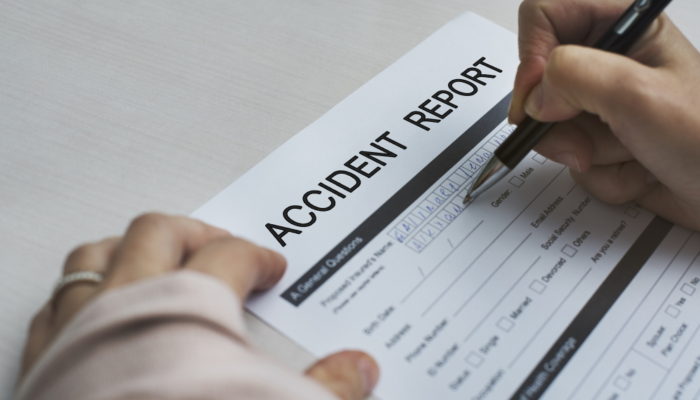With the passage of time, increasingly more aspects of daily life move online. The emergence of the recent pandemic has only accelerated that trend. One can work from home, go on virtual tours to various destinations, or even take classes from the comfort of one’s home or dorm room. To extrapolate, it is unsurprising that there is an emerging trend for virtual estate planning in Florida as well as most other states across the nation.
Estate planning that operates from a website or using web based tools primarily, also known as online estate planning or Do It Yourself estate planning, offers an alternative or complement to traditional estate planning with a lawyer. There are now various online legal tech companies, which offer products that allow an individual to prepare a Last Will & Testament as well as other legal documents on their own, without necessarily hiring an attorney.
As an estate planning tool, the way online planning works is that, for a specified fee, a person receives digital access to templates for common estate planning documents, such as Last Wills, Living Trusts, and Healthcare Directives, among others. The templates are claimed to be state specific, designed to comply with or follow the laws of each state. Consequently, a virtual planning platform might offer one document template for Florida, another for New York, California, Pennsylvania, etc. However, not every service makes all their forms available for use in every state.
As part of the process, the planning software asks for one’s basic identifying information and estate planning goals, along with information more specific to the form one is creating. When preparing a Last Will, a person will describe their estate planning assets in Florida and elsewhere as well as their designated beneficiaries and identify persons to serve as the Florida Personal Representative (or Executor) and alternate, if any. Once the customer information has been inputted, the software populates editable fields within the template. If everything works as intended, an individual will supposedly end up with a legally valid document that becomes effective after it has been printed out, signed, and properly witnessed, and notarized in accordance with Florida law (or the laws of whichever state is applicable).
Importantly, virtual estate planning is usually limited to document preparation. The software cannot provide legal advice or represent a person in a probate proceeding in Florida or elsewhere. Therefore, for the concept to work correctly, a person needs to already have a fairly good grasp of what they are trying to accomplish and the basic approach they want to take.
Web based preparation of legal documents is by no means restricted to estate planning. Online legal tech companies also offer numerous business related forms such as articles of incorporation, partnership agreements, and operating agreements for LLCs in Florida and elsewhere. HOWEVER, the personal nature of estate planning, and the widespread popular need for estate planning documents have led to rapid growth in the number of people planning their estates online. In turn, the proliferation has fueled concern among some legal professionals.
The primary selling points of online estate planning are that the process is convenient and cheaper than hiring a locally licensed lawyer. Online legal tech companies boast that they can help the public prepare a Last Will for less than a private attorney. An individual may have a challenging time finding a lawyer who can draw up a Will for them that cheaply. HOWEVER, a Legal Services/Legal Insurance Plan can provide a member the personal or individualized touch of a local lawyer with the competitive rates as the online services. In fact, some Legal Insurance or Legal Services Plans even pay for a basic estate plan involving no tax planning as well as business documents and other specified legal services. Therefore, one has the best of both worlds.
Specifically, there are basically four (4) major types of legal plans offered: document provider, as discussed above, where people create their own paperwork; discount legal plans where people receive discounted hourly rates for legal services through screened attorneys; Employee Assistance Programs (EAP) where members have an initial free consultation and additional legal services can be provided at a discounted rate, and Legal Insurance Plans where members pay a set premium and receive services from a Plan attorney, and many, if not most, services are paid by the Plan (whether it is with an in house attorney or participating outside third party attorney). Many of these Plans can be a benefit one gets from their employer, or they can purchase a plan individually whether as an independent member or as a retiree.
Considering that many consumers or potential clients simply cannot afford to hire a lawyer, the importance of price should not be ignored. When the choice is between using templates provided by a credible online platform or having no help at all, virtual planning is a choice for many people. A better option, however, may be to join a Legal Services/Legal Insurance Plan that directs a member to participating attorneys and the member gets legal services for a discounted rate or the Plan may pay for the services in their entirety. These Plan Attorneys can also provide services remotely with the use of telephone, email, and other internet services.
Efficiency and convenience are also noteworthy advantages of online estate planning or the use of Legal Services/Legal Insurance Plan attorneys. By using a service that one can access from home or work on their own time, one can avoid the need to take time off from work or otherwise disrupt their schedule to meet with a lawyer. Therefore, after the necessary information is supplied, the appropriate documents are created, so the overall process takes less time and may be more convenient.
As stated, the convenience of pre-built online templates comes with a loss of personalization. Most online templates cannot be customized beyond the user-populated fields. If the form is perfectly suited to one’s circumstances, that may not be a problem. However, every person’s situation is different. If a person has an unconventional family structure, large or complex estate, or any other situation not contemplated by the template, the said individual might not be able, on their own, to tailor the documents to do what they really require or need.
When a person collaborates directly with a capable attorney, they can discuss their individual circumstances, needs, concerns, and goals. Experienced attorneys can draft provisions customized to one’s particular situation and are also more familiar with the idiosyncrasies of state law that can cause potential estate planning headaches. Web based software is much less likely to identify and address these state specific statutes that might affect only a minority of their users. Therefore, the use of a Legal Services/Legal Insurance Plan Attorney comes in to promote convenience without sacrificing the personal attention, skill, and experience of a local attorney.
If you should have any additional questions or would like to discuss your situation, concerns, and needs, please contact an attorney at Caserta & Spiriti. The firm participates with about fifteen (15) different Legal Services/Legal Insurance Plans.










